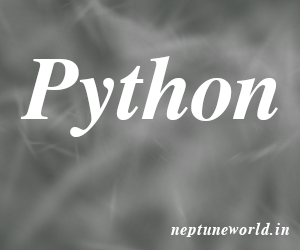Getting Started with Google Cloud Platform (GCP)
Author: neptune | 23rd-Apr-2022 | views: 1073
Introduction to Google Cloud
What is cloud computing?
Cloud computing has five fundamental attributes, according to the definition of cloud computing proposed by the United States National Institute of Standards and Technology.
Five Fundamental attributes:-
On-demand self-service
Broad Network Access
Resource Pooling
Rapid Elasticity
Measured Service
First, customers get computing resources on-demand and self-service.
Second, they can access these resources over the network.
Third, the provider of those resources has a big pool of them and allocates them to customers out of the pool.
Fourth, the resources are elastic. Customers who need more resources can get more rapidly. When they need less, they can scale back.
And last, the customers pay only for what they use or reserve, as they go. If they stop using resources, they stop paying.
GCP computing architectures are:-
Compute Engine
Kubernetes Engine
App Engine
Cloud Functions
Managed services
GCP is organized into Regions and Zones
Regions are independent geographic areas that consist of zones. Locations within regions tend to have round-trip network latencies of under 5 milliseconds on the 95th percentile.
The following services have one or more multi-regional deployments in addition to any regional deployments:
Google App Engine and its features
Google Cloud Datastore
Google Cloud Storage
Google BigQuery
Google offers a customer-friendly pricing
When it comes to cost, GCP offers many options to its customers. It offers a per-second billing.
Billing in sub-hour increments
Discounts for sustained use
Discounts for committed use
Discounts for preemptible use
Custom VM instance types
GCP products and services can be broadly categorized into 6 categories.
Compute
Storage
Big Data
Machine Learning
Networking
Operations/Tools
In this course, we will explore the first four compute services - Compute, Storage, Big Data, and Machine Learning.
Compute services offered by GCP.
Compute Engine
Kubernetes Engine
App Engine
Cloud Functions
These services all have pretty cool names, but you get confused with regards to their functions and what makes them unique from each other.
Later we will explore more about these services.
Storage services offered by GCP.
Bigtable
Cloud Storage
Cloud SQL
Cloud Spanner
Cloud Datastore
GCP offers developers and IT organizations durable and highly available object storage. You can assess with no minimum fee. You only pay for what you use.
Well, you might be familiar with the file storage you manage data as a hierarchy of folders. It’s not the same as block storage, it is completely different from a simple file storage system.
What is Object Storage?
Object storage means you tell your storage, “Keep this arbitrary sequence of bytes here,” and the storage lets you address it with a unique key. In GCP and other Object storage, these unique keys are in the form of URLs, which means object storage interacts well with web technologies.
The storage objects offered by Google Cloud Storage are “immutable” which means you can’t edit them, but you can create a new version.
Data services offered by GCP.
Big Data
Machine Learning
1. Big Data services offered by GCP.
BigQuery
Pub/Sub
Dataflow
Dataproc
Datalab
Big data systems store and process massive amounts of data. It provides unlimited data storage options for big data processing and analysis.
BigQuery is widely used for Big Data processing. It has an SQL-compatible engine that can perform analysis on very large data volumes in seconds.
2. Machine Learning services offered by GCP.
Natural Language API
Vision API
Machine Learning
Speech API
Translate API
Google has pledged to make this Artificial Intelligence domain knowledge accessible. AI Platform is designed to make it easy for data scientists and engineers to streamline ML workflows and access AI developed by Google.
For example, advanced models built using Tensorflow, and SKLearn.
Hope you get something from this course.
Thanks for Reading !!!

anonymous | March 1, 2022, 1:28 a.m.
Add more about GCP